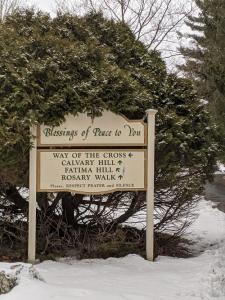I first experienced pornography when I was 10 years old. It was 1985. One of my younger uncles had come to live with us for a while, and he stashed his collection of porn magazines in a box in the attic. My brother and I came across them while looking for the Easter decorations, buried beneath the long-handled wicker baskets and tangled messes of green plastic grass.
I remember the paper was slick and the photos were bright. The women had big, sprayed-up hair. They looked directly at me, un-ashamed. No woman had ever looked at me in that way before. And, of course, they were naked.
My brother and I giggled. But we also knew that something about this was not quite right, and that we needed to tell my mother. I don’t remember her reaction. I do remember how foreign and complicated looking the vagina seemed, compared to the very straight forward penis.
Four years later, in the 8th grade, I saw my first porn video. I was at my older neighbor’s house. He was already in high school. We were skateboarding buddies and often spent hours together. We ran a fake radio station, WPIG, pretending to be DJs, making mixtapes with banter and little skits in between.
We watched the video on the TV set in the living room, in broad daylight. It tried hard to have a plot. There was espionage of some sort, a gun with a long silencer, and, of course sex.
Pussy was not a word that I used at all then, though later in high school I would use it often, especially on the soccer field and on the baseball diamond. In college at Notre Dame I had a roommate with a t-shirt that read “DON’T BE A PUSSY.” I thought it was stupid and was embarrassed for him when he wore it.
I’m happy to say that the crew of guys I hung out with in the college, and to a certain extent am still in touch with, were not much for locker room talk of the kind Donald Trump was recorded using. For me, because I can only speak for myself, I was embarrassed to share intimate details with anyone. What I did in private was my business, no one else’s. In the back of my mind, and I’m not sure where this feeling came from, it was rude, crude, and exploitative to share these details.
I’d like to think that this was the influence of my faith, and in particular, the patroness of the university, Notre Dame, Our Lady, our mother. Of course, this reason is not without its problems. The virgin/whore dichotomy was, to quote my students, a thing. I knew it existed, and I was unsure how to reconcile it. I was not raised in an orthodox Catholic home. In fact, there was very, very little religious indoctrination in my home at all. My mother was a Seventh Day Adventist and had “a personal relationship” with God. He walks with me and talks with me, she would sometimes say. My dad took us boys to mass, and allowed, or so it seemed to me, for nature to take its course, for the liturgy to somehow work its magic. I am in many ways grateful to my dad for this. I listened very carefully to the readings. I sang, kneeled, and stood when prompted. It didn’t feel like a hardship to me at all.
The parish we attended was Our Lady of Lourdes, and so Marian devotion was there even from the beginning. It is, I think, what keeps me returning to the Church, not so much the miraculous virgin birth–there is that, and that’s something, isn’t it?–but more that I continue, now that my own mother has passed, to need a mother. A therapist would probably have a field day with all of this, but it feels important and necessary for me to confess it.
I still have one of those fake radio station cassettes. It’s both what you might expect from that time–U2 and REM, INXS and The Smiths–but listening to it again, I’m aware of my high, staticky pre-pubescent voice, and a general theme of desire, a desire for women, a desire to be loved by women, but also a very clear sense that women are distant, fickle, and even a little supernatural.
U2, “Desire”:
And the fever/ when I’m beside her/ Desire, Desire
Echo & The Bunnymen, “Lips Like Sugar”:
She floats like a swan/Grace on the water /Lips like sugar /Lips like sugar
Just when you think you’ve caught her/She glides across the water
She calls for you tonight/To share this moonlight
REM’s “Superman”:
You don’t really love that guy you make it with, now, do you
I know you don’t love that guy ’cause I can see right through you
. . . If you go a million miles away, I’ll track you down, girl
Trust me when I say I know the pathway to your heart
INXS, “I Need You Tonight”:
All you’ve got is this moment
21st century’s yesterday
you can care all you want
everybody does
yeah, that’s okay
So slide over here
and give me a moment
your moves are so raw
I’ve got to let you know
You’re one of my kind
Back in 2005 when I was doing research for my first book, essays on the Abu Ghraib prison photos, I read A LOT of studies on the effects of depictions of violence on young people (TV, film, video games, mostly). The research at that time was convincing enough that the American Academy of Pediatrics concluded that it was a serious health risk to adolescents for a number of reasons, including “aggressive behavior, desensitization to violence, nightmares, and fear of being harmed.”
I also read a lot on the effects of pornography on adults (the effect of it on children was evident, right?). But most of what I could find was Catholic and moralistic, i.e. pornography degrades women and erodes the sacredness of sex and the body. I’d heard that, known that, and believed it, but I also wanted to believe that perhaps it was something that could be used in moderation. That porn could be an aid to intimacy that didn’t prevent us from having healthy relationships.
When Susan Sontag, one of my writing heroes, wrote in the The New York Times that the abuses at Abu Ghraib prison were the result of America’s “porn-soaked culture,” I thought that it was much too easy. Porn was being scapegoated. What happened, what my research was going to show, had more to do with American exceptionalism, which is bound up in Christian exceptionalism, which is bound up in a notion of America as the New Jerusalem, the shining city of a hill illuminating the whole world.
I thought of this again with the release of the Trump Access Hollywood tape. I think of it when I hear that Hillary Clinton bullied and intimidated women who accused her husband of assault and rape. I’m not suggesting that we blame pornography for Trump’s or Bill Clinton’s behavior. But is the ubiquity and pervasiveness of pornography in American culture influencing attitudes toward women and the often cavalier reactions to violence against women?
Since 2005, revenue from porn in the United States has gone from a modest $1 billion a year to $10-12 billion. A 2002 study figured that the average porn user watched a little over one hour of porn per month. These are tough stats to calculate in any kind of holistic way–there are thousands of porn sites on the web–but consider that Porn Hub, reported that they received 21.2 billion unique visits in 2015, with the average visit being a little over nine minutes. Let’s for argument’s sake say that someone does that every day: 9 minutes X 30 days in a month= 270 minutes= 4.5 hours every month–and that’s just for one site.
If that number doesn’t grab you, then consider that the total number of hours of porn watched on Porn Hub last year was 4.3 billion–that’s hours, not minutes.
And before you start saying, well, that’s a small minority of the population who are doing all the watching, in 2014 the Barna Group conducted a survey of Americans revealing that 63 percent of men 18-30 and 38 percent of men 31-49 watched porn more than once a week.
In June of this year, the AAP updated their October 2015 statement that, according to extensive research, pornography is a serious health risk to children AND adults. None of the effects on the list are surprising, but the last caught my attention: “…a distorted view of relationships between men and women”
A woman from eastern Pennsylvania was asked following a Trump rally about her candidate’s lewd comments: “…that’s just how men talk,” she responded, implying that we just need to live with it; that there is no changing the essential nature of men. Also implied is that somehow this talk is harmless, and/or it does not correlate to any actual behavior on the part of men. This is either dangerously naive or disingenuous.
If this is really the way most men talk to women and regard women, then we are living in a country that is openly hostile towards women, a culture that regards women as objects for sexual pleasure, a culture that assumes that such comments are harmless and should not be taken seriously. A culture that tells women they should never take what men are saying at face value because men are constantly saying things they don’t actually think or mean. In psychological terms, this is called “gaslighting,” and it will drive you crazy.
Men, imagine living in such a situation? Oh wait. This is the quintessential fantasy of many men: that no matter what a woman says, she desires you sexually.
Living in such a culture ultimately leads to high levels of anxiety. Women are given two options: either accept that this is the way men are and do your best to ignore them (like adults are often told to do when dealing with obnoxious children–just ignore them and they’ll stop), or report the behavior and risk being labeled uptight or a bitch or a “publicity hound”; or worse, becoming a target because you dared to speak out. The woman who was suing Donald Trump for raping her when she was 13? She dropped the suit after receiving “numerous threats.”
But what’s clear is that ignoring it doesn’t make it go away; if anything, ignoring it reinforces that violent sexual talk is no big deal, a joke, an acceptable way for men to behave. In other words, ignoring it encourages it. Women are damned if they do and damned if they don’t.
And what happens to men growing up in such a culture? What of the increase in incidents of “revenge porn,” in which a man makes public a recording of he and his partner in order to punish the woman after a breakup? What about men who hound women to text them nude photos and then share them widely with their friends? Both situations tend to begin with men playing upon a woman’s sense of what pleases men, what men expect, what men say will prove that the woman cares about them and their needs.
This isn’t to say that women do not sometimes freely share pictures of themselves with others, or initiate recordings. That’s their right, of course. It’s anyone’s right, right? (Unless you’re a minor and then you could be arrested for child pornography, for pornogrifying yourself.) But this is also what defenders of Trump–men and women–will say, as well as defenders of Bill have said/are saying: that women are just as bad as men.
Hillary Clinton has not been accused of sexual misconduct. Her greatest transgression is that she thanked a woman who alleged that her husband assaulted her for not reporting it. If this did happen, why is it so difficult to imagine? This is what women have been forced to do in our culture–to cover up for men, to explain away their transgressions.
So, on what grounds do people hate Hillary, believe her to be an actual demon smelling of sulfur (as Alex Jones claims)? Is it that she comes off as an aloof political elite who is out of touch with the working American? Is it that people think she single-handedly created Isis? Is it that she is being very vocally endorsed by the first black president, who also, by the way, has on a number of occasions cried foul against the patriarchal, misogynist culture we live in? Is it that she allowed Americans to die in Benghazi? Is it that she is still married to Bill; that she didn’t divorce him? Or might it be that she is one of the most powerful women in the world, and is now very close to becoming the most powerful person in the world?
David Griffith is the director of creative writing at Interlochen Center for the Arts and the author of A Good War is Hard to Find: The Art of Violence in America.













